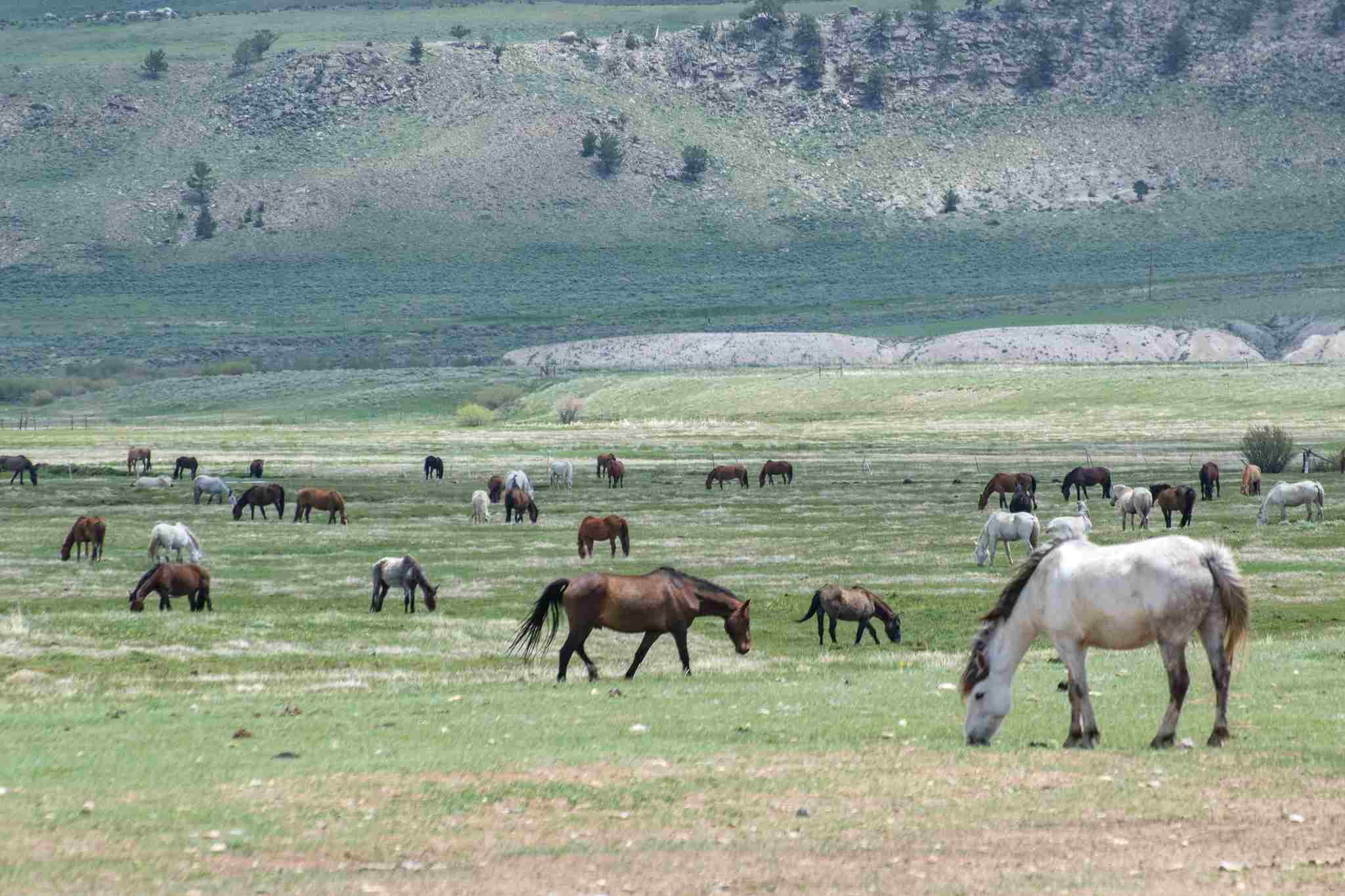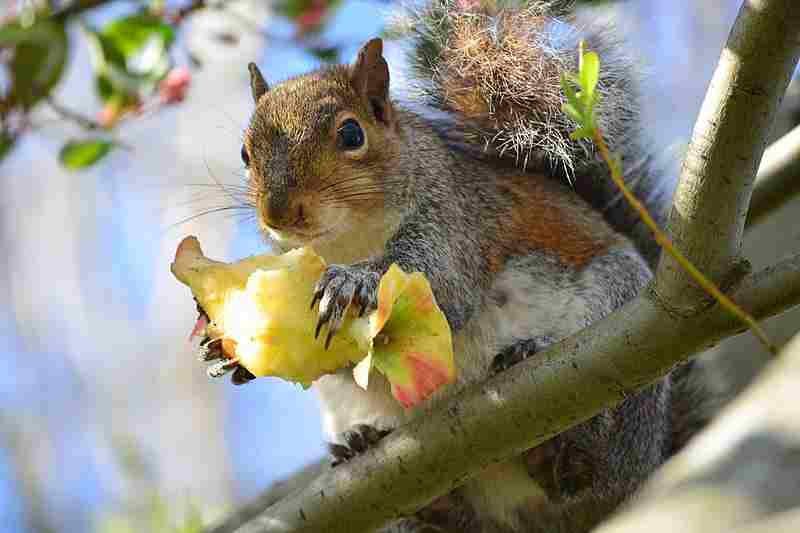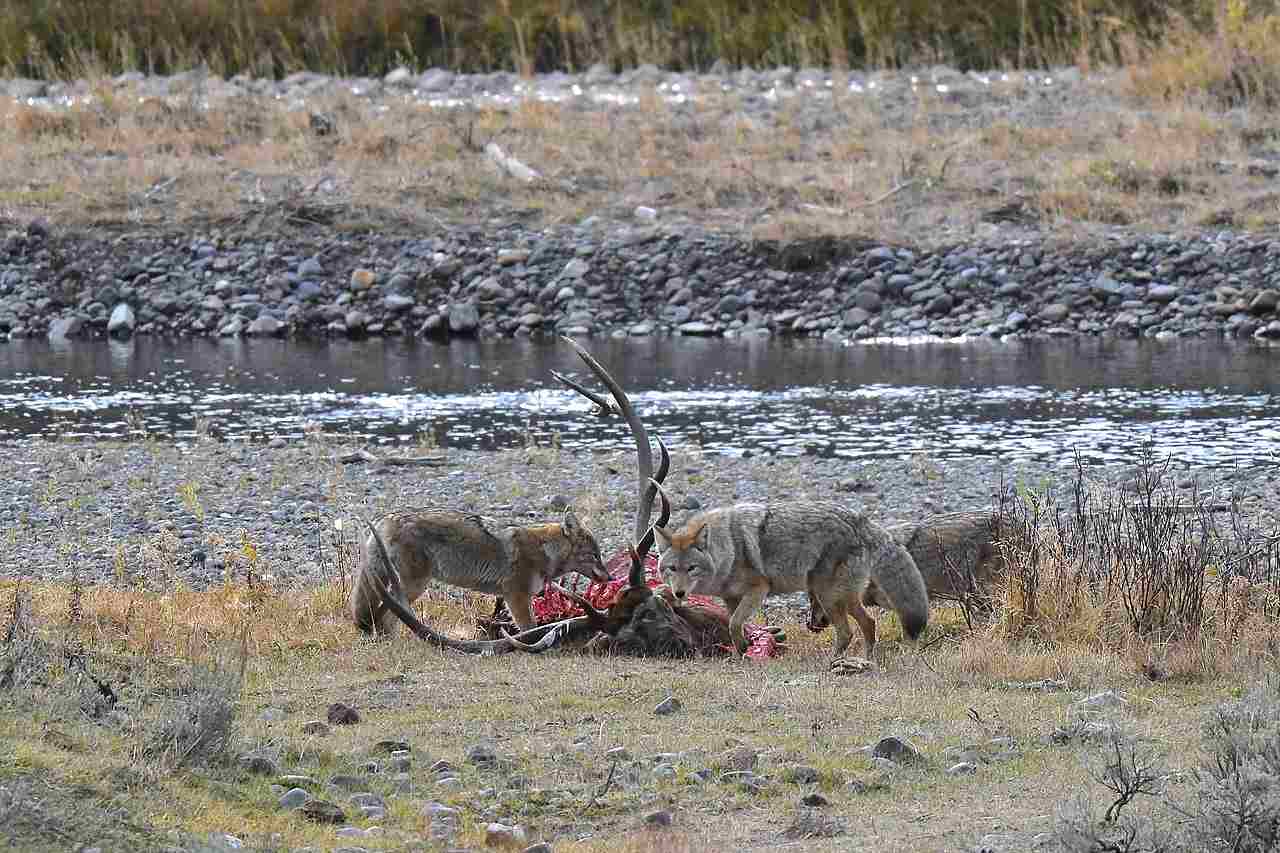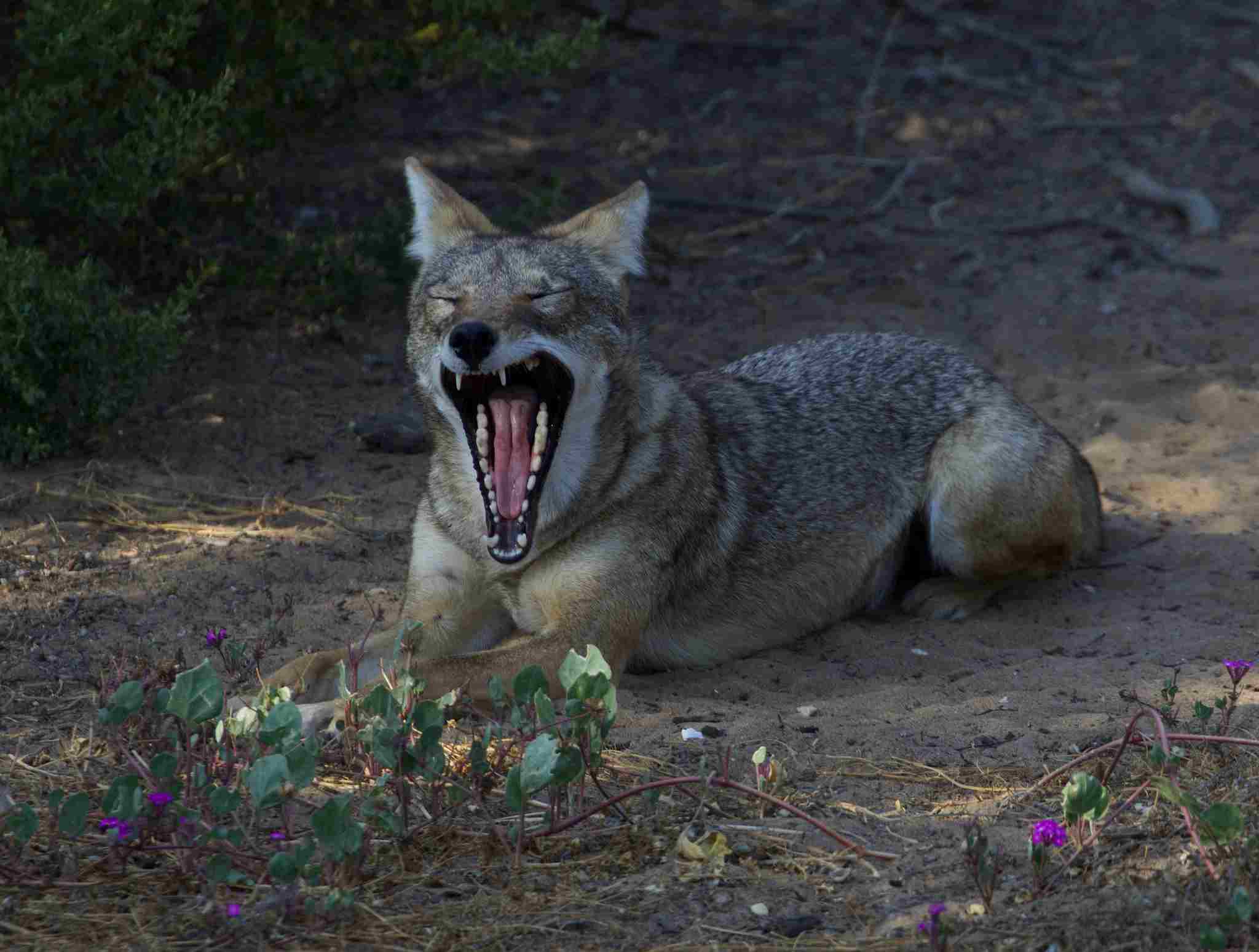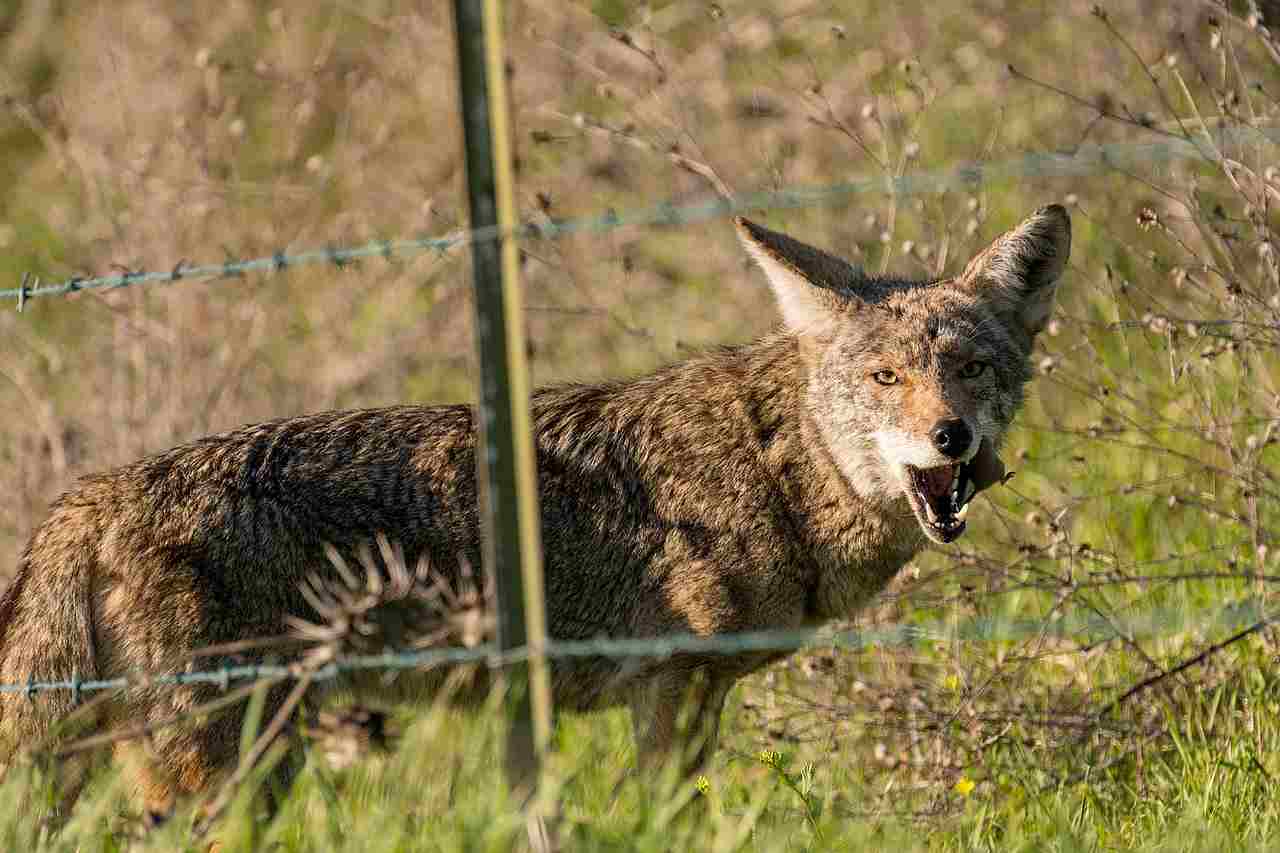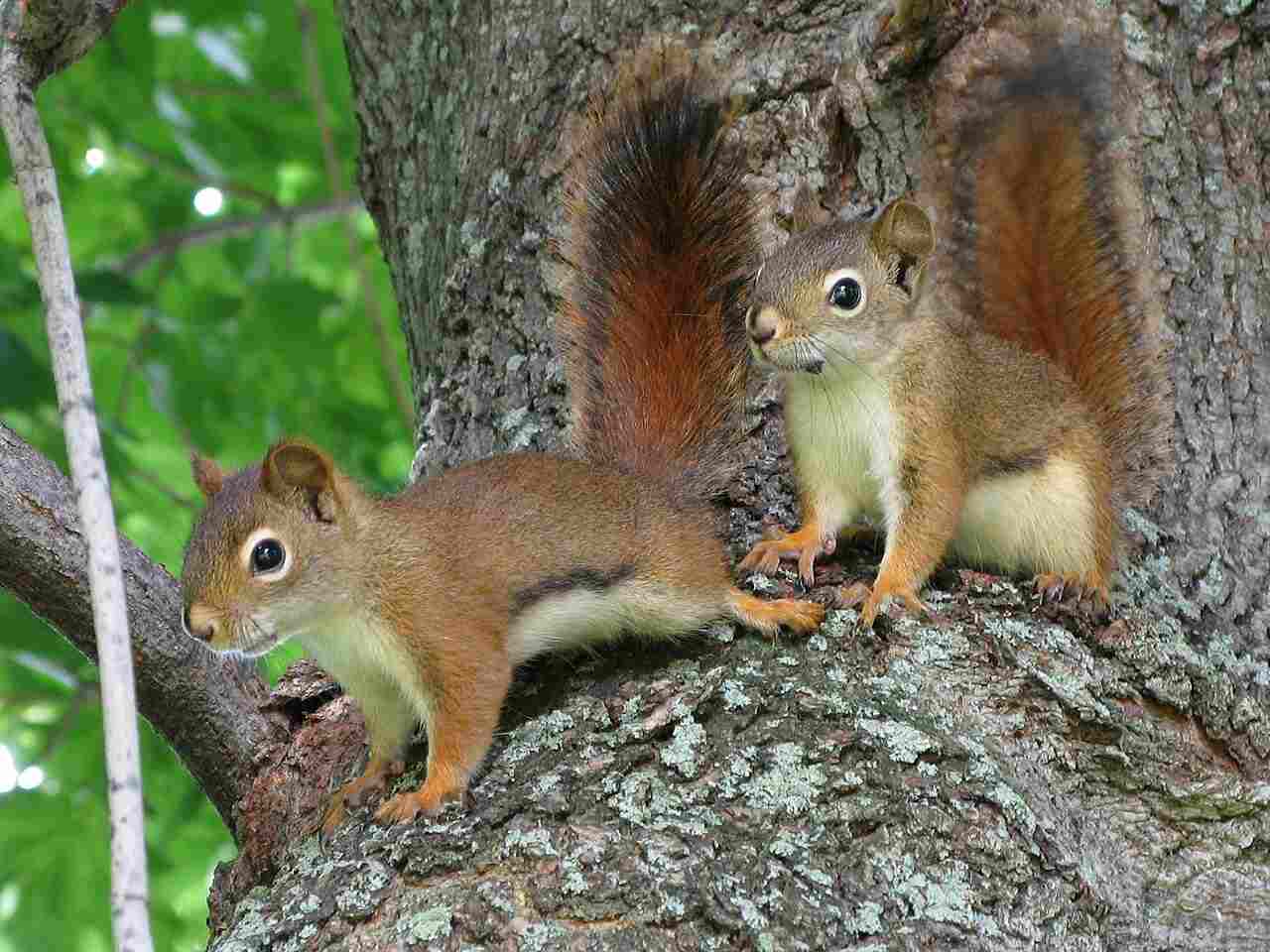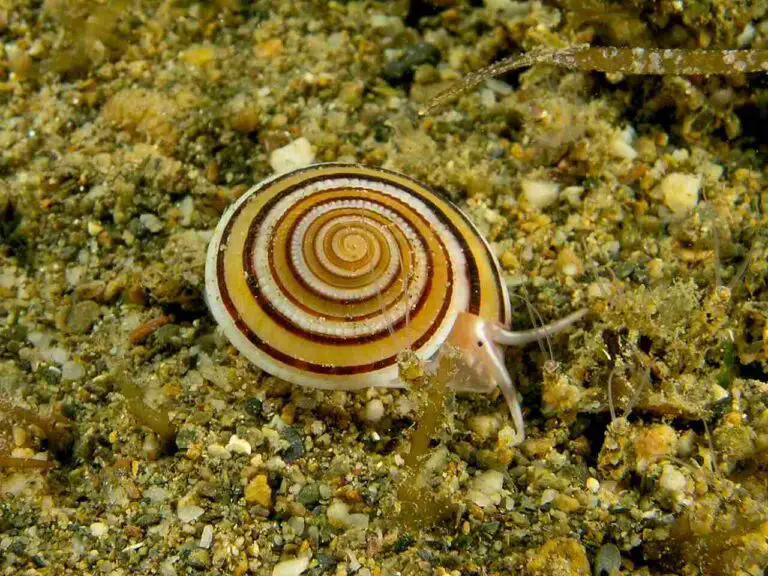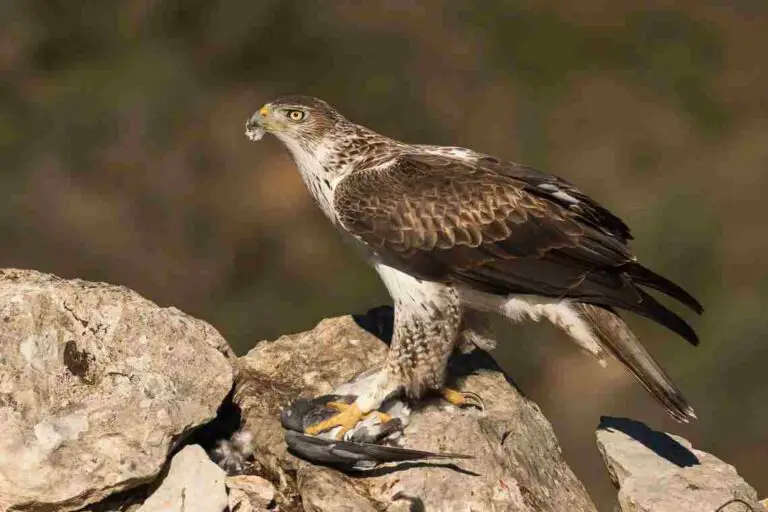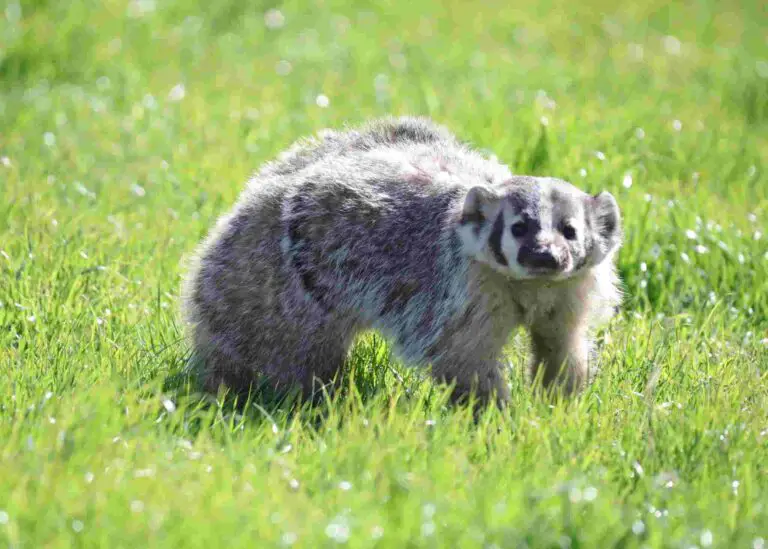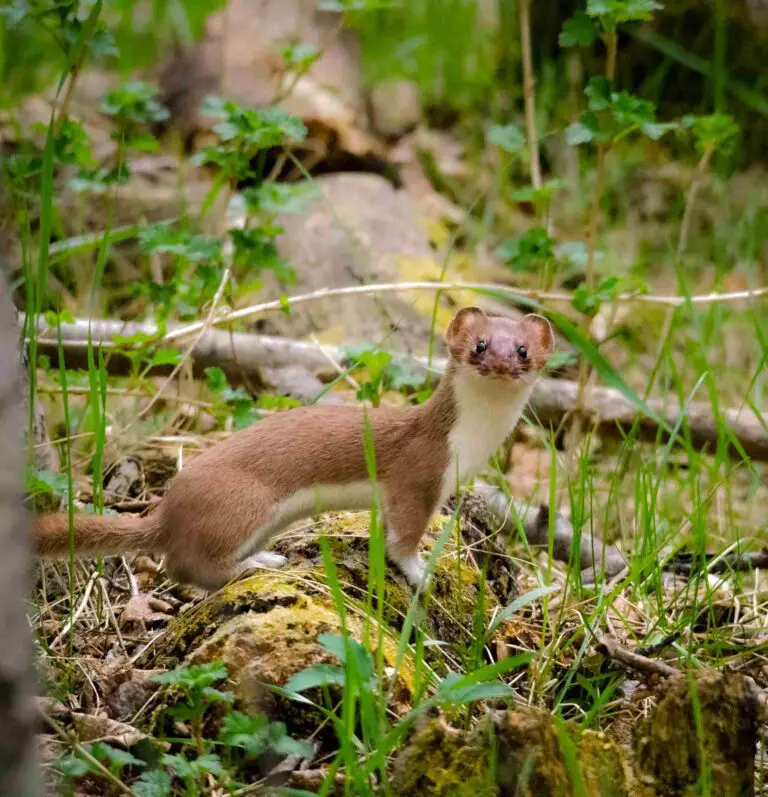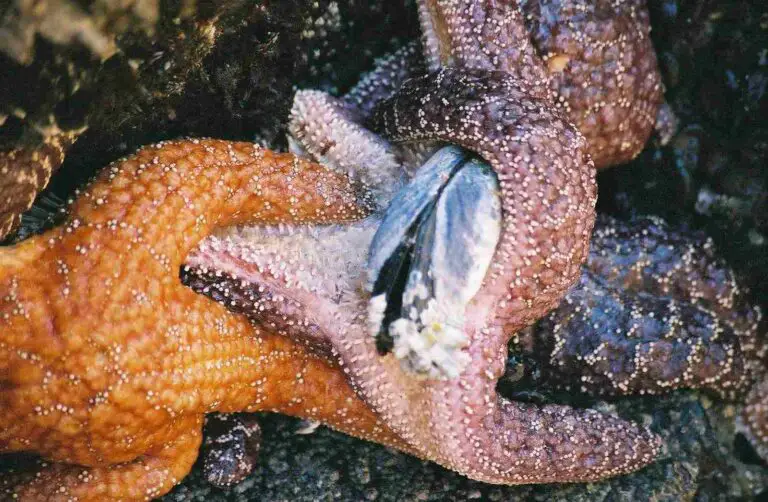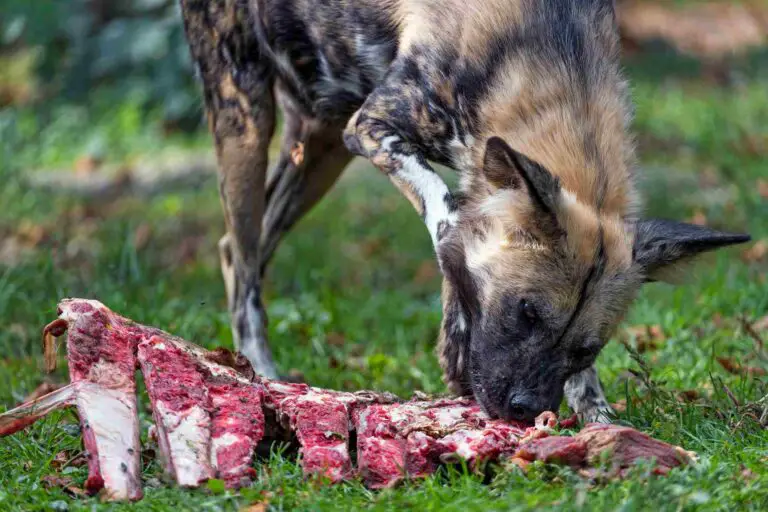Are Horses Omnivores? Overview of Horse Feeding Habits
Horses are not omnivores, but rather obligate herbivores. They do not eat non-plant materials. Horses have a specialized digestive system that is designed for a strict plant diet. Unlike omnivores such as squirrels and coyotes, horses do not have opportunistic feeding habits and cannot consume both plant and animal materials.
Their dental and digestive adaptations are specifically geared towards the consumption of plant matter. Horses do not have the ability to efficiently break down meat in their digestive system, further supporting their herbivorous nature. Additionally, horses are potential prey for carnivores, which further emphasizes their non-predatory characteristics.
Why Horses are Not Omnivores
1). Lack of Opportunistic Feeding Habits
Horses are not omnivores due to their lack of opportunistic feeding habits. Unlike omnivores, horses do not eat whatever is available to them. Instead, they have a selective diet that consists solely of plants. This is a key reason why horses are classified as herbivores rather than omnivores.
Horses have evolved to consume a specific type of food, which is reflected in their dental and digestive adaptations. Their teeth are designed for grinding and chewing plant material, while their digestive system is optimized for breaking down and extracting nutrients from plants. This specialization further supports the notion that horses are herbivores.
Furthermore, horses do not include animal biomass in their diet. They do not consume meat or rely on animal sources for sustenance. This is another characteristic that distinguishes them from omnivores, who have the ability to consume both plant and animal matter.
2). Inability to Rely On Animals as Food Sources
One of the key reasons why horses are not omnivores is their inability to rely on animal sources for food. Unlike omnivores, horses do not include animal biomass in their diet. They have evolved to solely consume plant material, which is reflected in their dental and digestive adaptations.
Horses lack the necessary physiological characteristics to efficiently break down and extract nutrients from meat. Their digestive system is optimized for processing plant matter, not animal protein. This further supports the classification of horses as herbivores rather than omnivores.
In the wild, horses do not actively seek out or prey on animals for sustenance. They rely solely on plants as their primary source of nutrition. This exclusive plant consumption is a defining characteristic of herbivores and sets horses apart from omnivores, who have the ability to consume both plant and animal matter.
Is a Horse a Herbivore?
A horse is indeed a herbivore, meaning it is an obligate plant-eater. Horses consume only plants and plant-derived materials, such as grass, hay, and grains. They do not include any animal biomass in their diet. As a herbivore, a horse occupies a crucial role in the food chain and can be classified as a primary consumer.
It feeds directly on producers, such as plants, and helps transfer energy and nutrients through the ecosystem. Horses have evolved specialized dental and digestive adaptations to efficiently process and extract nutrients from plant matter. This exclusive plant consumption is a defining characteristic of herbivores and sets horses apart from omnivores or carnivores.
Why a Horse is a Herbivore
1). Dental and Digestive Adaptations
One of the main reasons why horses are herbivores is their dental and digestive adaptations. Horses have evolved to have specialized teeth and digestive systems that are perfectly suited for consuming and processing plant material.
Firstly, horses have a set of teeth that are designed for grinding and chewing fibrous plant matter. Their large, flat molars and premolars allow them to effectively break down tough plant fibers, while their sharp incisors help them to bite off grass and other vegetation.
Secondly, horses have a unique digestive system that enables them to extract nutrients from plant material. They have a large cecum, which acts as a fermentation chamber where bacteria break down cellulose and other complex carbohydrates. This fermentation process allows horses to extract energy from plant material that would otherwise be indigestible.
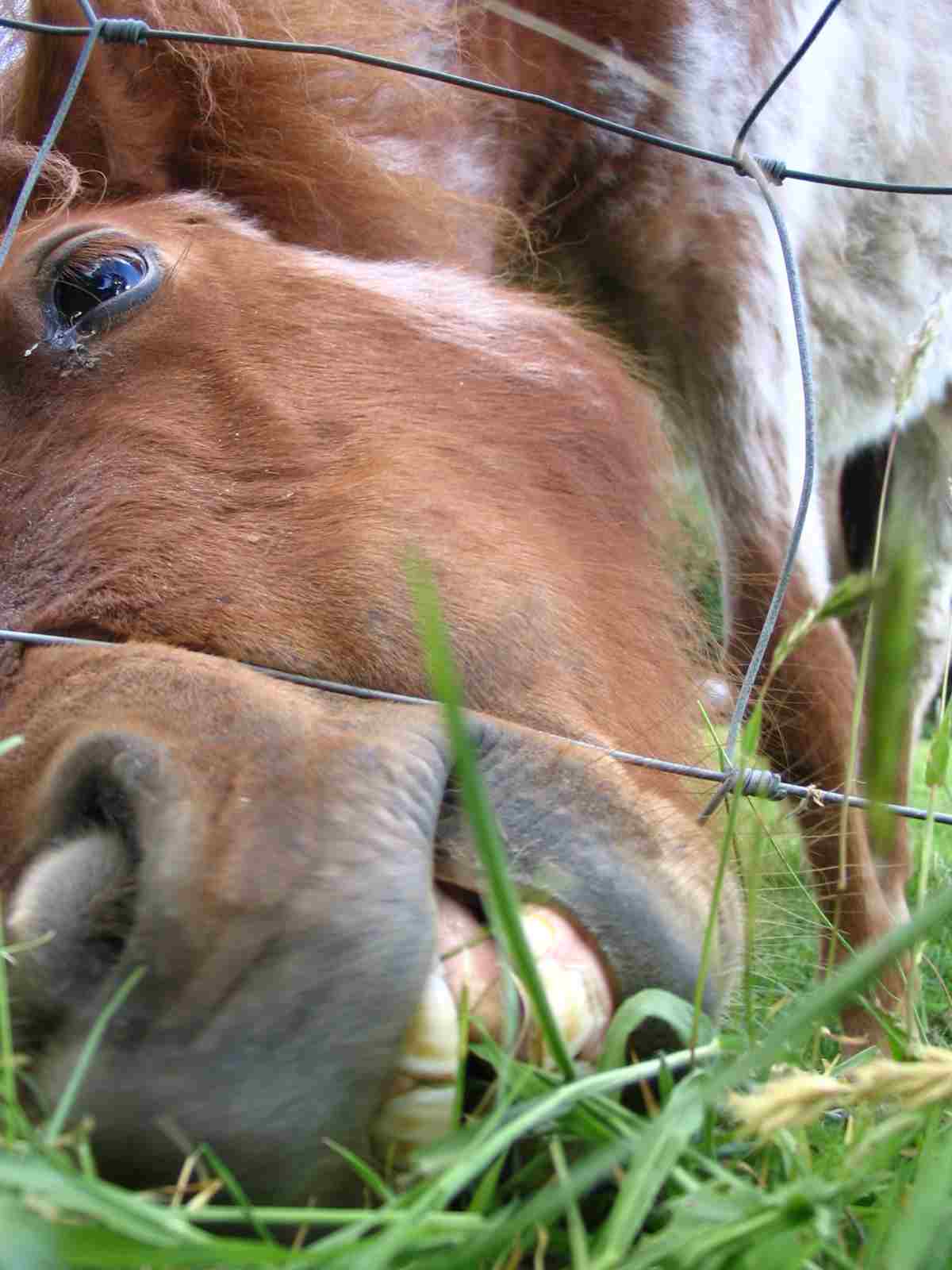
2). Exclusive Plant Consumption
Horses are herbivores due to their exclusive plant consumption. This is a key reason why they rely solely on plant material for their nutritional needs. Horses have evolved to consume a diet consisting primarily of grasses, hay, and other plant matter. Their teeth and digestive system are specifically adapted to process and extract nutrients from plant material.
Horses have large, flat molars and premolars that are designed for grinding and chewing fibrous plant fibers. These teeth allow them to break down tough plant material effectively. Additionally, horses have a unique digestive system that includes a large cecum. This fermentation chamber houses bacteria that break down cellulose and other complex carbohydrates found in plants. Through this fermentation process, horses are able to extract energy from plant material that would otherwise be indigestible.
3). Non-Consumption of Animal Biomass
One of the main reasons why horses are classified as herbivores is their non-consumption of animal biomass. Unlike omnivores or carnivores, horses do not rely on animals as a food source. Their diet consists solely of plant material, such as grasses, hay, and other vegetation. Horses have evolved to efficiently extract nutrients from plants, utilizing their specialized teeth and digestive system.
Horses possess large, flat molars and premolars that are designed for grinding and chewing fibrous plant fibers. These teeth enable them to break down tough plant material effectively. Additionally, horses have a unique digestive system that includes a large cecum, which houses bacteria responsible for breaking down cellulose and other complex carbohydrates found in plants. Through this fermentation process, horses are able to extract energy from plant material that would otherwise be indigestible.
Are Horses Carnivores?
No, horses are not carnivores. They do not eat flesh or animal biomass as a food source. Instead, horses are classified as herbivores due to their exclusive consumption of plant material.
Horses have evolved to thrive on a diet consisting solely of plants. Their dental and digestive adaptations support their herbivorous nature. Horses possess large, flat molars and premolars that are specifically designed for grinding and chewing fibrous plant fibers. These teeth allow them to effectively break down tough plant material.
In addition to their specialized teeth, horses have a unique digestive system that further supports their herbivorous diet. They have a large cecum, which houses bacteria responsible for breaking down cellulose and other complex carbohydrates found in plants. Through this fermentation process, horses are able to extract energy from plant material that would otherwise be indigestible.
Overall, the lack of predatory characteristics and the inability to efficiently break down meat indicate that horses are not carnivores. Their anatomy and physiology are adapted for the consumption and digestion of plant material, making them herbivores by nature.
Why Horses are Not Carnivores
1). Non-Predatory Characteristics
Horses possess several non-predatory characteristics, which further support the fact that they are not carnivores. Firstly, their physical attributes are not designed for hunting or capturing prey. Unlike true carnivores, horses lack sharp, pointed teeth and retractable claws. Instead, they have flat, grinding teeth and hooves adapted for grazing on vegetation.
Secondly, horses do not possess the instinctual behaviors associated with hunting and killing prey. They do not stalk or pounce on animals, nor do they exhibit predatory behaviors such as chasing or ambushing. Instead, horses are social animals that live in herds and rely on their strong sense of flight to escape from potential predators.
Lastly, horses lack the necessary digestive enzymes and specialized stomachs to efficiently break down and process meat. Their digestive system is designed for the breakdown and fermentation of plant matter, not animal protein. This further reinforces their herbivorous nature and their reliance on a diet consisting primarily of plant material.
2). Digestive Incapacity for Efficient Meat-Breakdown
Another reason why horses are not carnivores is their digestive incapacity for efficient meat-breakdown. Horses have a specialized digestive system that is designed for the breakdown and fermentation of plant matter, not animal protein.
Firstly, horses lack the necessary enzymes to efficiently break down meat. Their digestive system is optimized for breaking down cellulose, the main component of plant cell walls, through the process of fermentation. This allows them to extract nutrients from plant material effectively. However, they do not possess the same enzymes and stomach acidity required to efficiently break down and digest animal protein.
Secondly, horses have a relatively long digestive tract, which further hinders their ability to digest meat. The length of their intestines is adapted to extract nutrients from fibrous plant material, not from animal flesh. This makes it challenging for horses to extract sufficient nutrients from meat, leading to inefficient digestion.
3). Horses are Potential Prey for Carnivores
Horses are not predators but rather primary consumers in the food chain. They are potential prey for carnivores such as wolves, pumas, lions, and leopards. This is another reason why horses are not carnivores themselves.
As herbivores, horses have evolved to be alert and agile to escape from predators. Their survival instincts and physical adaptations, such as their speed and strong legs, help them evade carnivorous animals. Horses have a flight response, relying on their ability to run away from danger rather than fight back.
In the wild, horses live in herds, which provides them with additional protection against predators. They can rely on the strength and numbers of the group to deter potential attacks. This social behavior is another characteristic that distinguishes horses as potential prey rather than predators themselves.
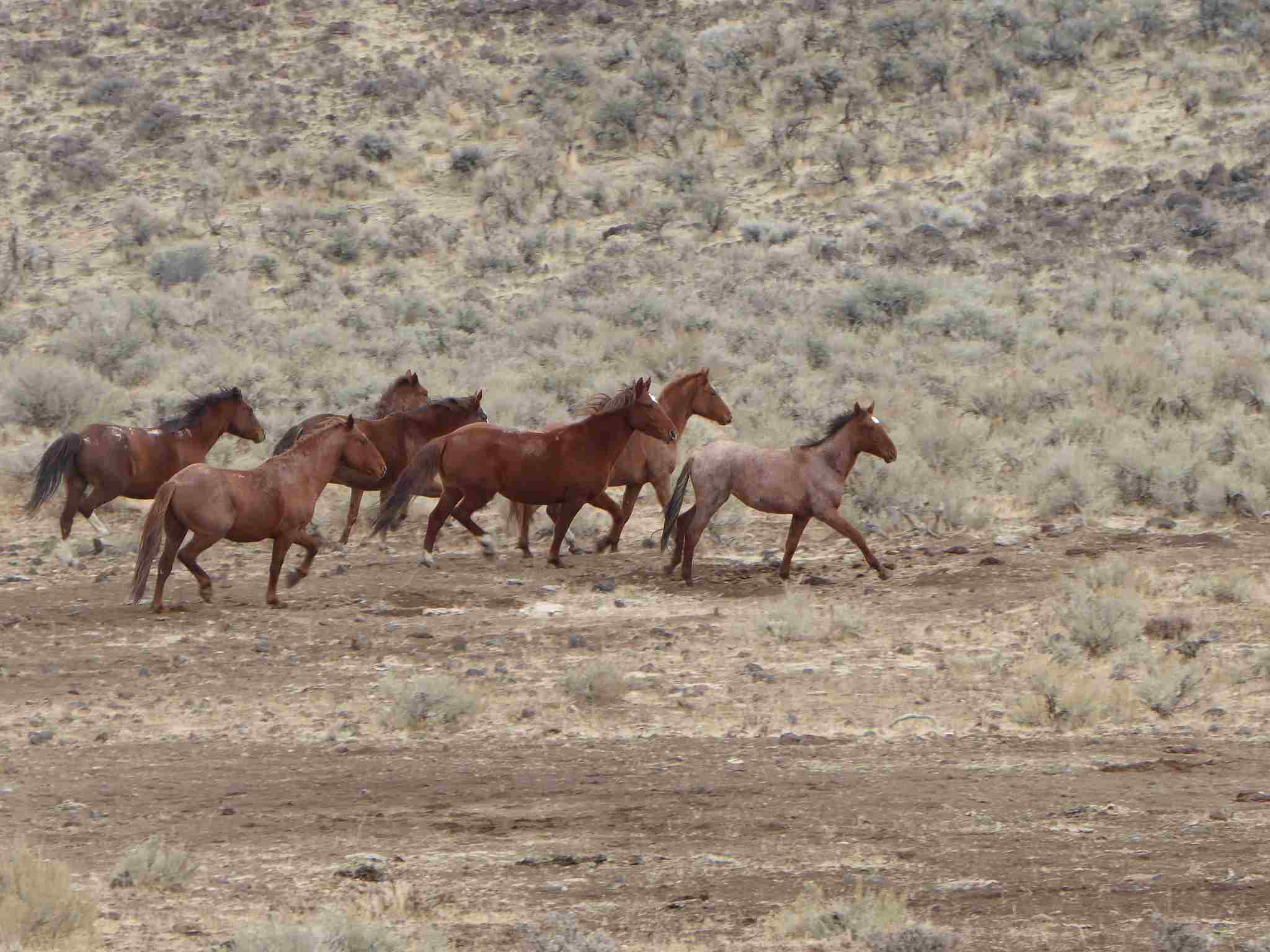
Are Horses Omnivores or Herbivores?
Horses are not omnivores but rather herbivores. They do not possess the characteristics or feeding habits of omnivorous animals. Unlike omnivores, horses do not consume both plant and animal matter as part of their diet. Instead, they rely solely on plant-based food sources for their nutritional needs.
One of the main reasons why horses are not omnivores is their lack of opportunistic feeding habits. Omnivores have the ability to adapt their diet based on the availability of food sources. They can consume both plants and animals when necessary. However, horses do not exhibit this behavior. They have a specialized digestive system and dental adaptations that are specifically designed for consuming plant matter.
Furthermore, horses do not rely on animals as food sources. They do not actively hunt or prey on other animals for sustenance. Instead, horses are exclusively herbivorous, consuming a variety of plant materials such as grass, hay, and grains. Their digestive system is optimized for breaking down and extracting nutrients from plant biomass, further supporting their classification as herbivores.
Is a Horse a Herbivore, Carnivore or Omnivore?
A horse is classified as a herbivore, as it primarily consumes plant-based food sources. Unlike carnivores, horses do not possess the predatory characteristics necessary for hunting and consuming meat. They lack sharp, carnivorous teeth and claws, and their digestive system is not optimized for efficiently breaking down and extracting nutrients from animal biomass. Instead, horses have dental and digestive adaptations that are specifically designed for consuming plant matter.
Horses are not omnivores either, as they do not consume both plant and animal matter as part of their diet. They do not exhibit opportunistic feeding habits like omnivores, which can adapt their diet based on the availability of food sources. Horses rely solely on plant-based food sources for their nutritional needs, such as grass, hay, and grains.
The dental adaptations of horses further support their classification as herbivores. They have large, flat molars and premolars that are ideal for grinding and chewing plant material. Their long, muscular digestive system is optimized for fermenting and breaking down fibrous plant matter, allowing them to extract nutrients from cellulose-rich foods.
Conclusion
* In conclusion, this article has explored the feeding habits of horses and their classification as herbivores.
* Horses are not omnivores, as they do not exhibit opportunistic feeding habits or consume both plant and animal matter. Instead, they rely solely on plant-based food sources for their nutritional needs.
* The dental and digestive adaptations of horses further support their classification as herbivores. Their large, flat molars and premolars are specifically designed for grinding and chewing plant material. Additionally, their long, muscular digestive system is optimized for fermenting and breaking down fibrous plant matter, allowing them to extract nutrients from cellulose-rich foods.
* On the other hand, horses are not carnivores either. They lack the predatory characteristics necessary for hunting and consuming meat. Their teeth and digestive system are not adapted for efficiently breaking down and extracting nutrients from animal biomass.
* It is important to note that horses are potential prey for carnivores in the wild. Their non-predatory characteristics and digestive incapacity for efficient meat breakdown make them vulnerable to carnivorous predators.
* To summarize, horses are herbivores that exclusively consume plant-based food sources. They do not possess the predatory characteristics of carnivores and lack the dental and digestive adaptations necessary for efficiently consuming animal biomass.
* Understanding the feeding habits of horses is crucial for their proper care and nutrition. Providing them with a diet that consists of high-quality forage, such as grass and hay, along with appropriate supplements, ensures their overall health and well-being.
* Horses are herbivores and should be fed accordingly to meet their nutritional requirements. By providing them with a balanced diet of plant-based food sources, horse owners can ensure the optimal health and performance of their equine companions.
FAQs
1. Can a Horse Eat Meat?
Horses are herbivores and generally do not eat meat. Their natural diet consists mainly of plants, such as grasses and hay. While horses have been known to exhibit curious behavior towards small animals, this does not mean they actively seek out or consume meat as part of their diet.
The digestive system of a horse is specifically designed to process plant material efficiently. Their teeth are adapted for grinding and chewing fibrous plant matter, and their long digestive tract allows for the breakdown of cellulose. These adaptations make it difficult for horses to digest and extract nutrients from animal protein.
Feeding horses meat can lead to serious digestive problems, including colic and impaction. It is not recommended to include meat in a horse’s diet. Instead, it is best to provide them with a balanced diet of high-quality forage and appropriate supplements to meet their nutritional needs.
2. Do Horses Eat Chicken Meat?
Horses do not eat chicken meat. Feeding horses chicken meat is not recommended as it can cause serious digestive problems. The digestive system of a horse is designed to efficiently process plant material, not animal protein. Their teeth and long digestive tract are adapted for grinding and breaking down fibrous plant matter, not meat.
Introducing meat into a horse’s diet can lead to complications such as colic and impaction. It is best to provide horses with a balanced diet of high-quality forage and appropriate supplements to meet their nutritional needs. Feeding them chicken meat is not only unnecessary but also potentially harmful to their health.
3. What Animal do Horses Eat?
No, horses do not eat animals.
Horses primarily eat plants and are classified as herbivores. Their diet consists mainly of grass, hay, and other plant materials. While horses may accidentally consume small invertebrates like insects, annelids, and mollusks that are present in the plants they eat, they do not deliberately seek out animals as a sole food source.
Horses lack the predatory characteristics and digestive adaptations necessary for efficient meat breakdown. Additionally, horses are potential prey for carnivores in the wild, further supporting their herbivorous nature. Therefore, it can be concluded that horses do not typically eat animals as part of their diet. Their dental and digestive adaptations are specifically designed for the consumption and processing of plant matter.
4. Do Horses Eat Mice?
No, horses do not naturally eat mice. Horses are herbivores and their diet consists mainly of plants such as grass, hay, and other plant materials. They do not have the predatory characteristics or digestive adaptations necessary to efficiently consume and digest meat, including mice. Horses are not equipped with the sharp teeth or strong jaws that carnivores possess to tear apart and consume animal flesh.
While it is possible for a horse to accidentally ingest a mouse if it is present in the plants they are eating, it is not a deliberate part of their diet. Horses primarily rely on plant matter for their nutritional needs and have evolved to efficiently process and extract nutrients from plant-based foods.
In the wild, horses are potential prey for carnivores, and their survival instincts are geared towards avoiding predators rather than hunting or consuming small animals like mice. Therefore, it can be concluded that horses do not typically eat mice as part of their natural feeding habits.
5. Why Do Horses Eat Birds?
Horses do not naturally eat birds as part of their diet. Horses are herbivores and their feeding habits are focused on consuming plant-based foods. They have dental and digestive adaptations that are specifically designed for processing and extracting nutrients from plants.
Horses lack the predatory characteristics and digestive capacity to efficiently consume and digest meat, including birds. While it is possible for a horse to accidentally ingest a bird if it is present in the plants they are eating, it is not a deliberate part of their natural feeding habits. Horses primarily rely on plant matter for their nutritional needs.
6. What Do Horses Eat?
Horses primarily consume plant-based food, such as grass, hay, and grains. Their diet consists mainly of forage, which includes fresh grass and dried hay. These plant materials provide the necessary nutrients, including carbohydrates, proteins, vitamins, and minerals, to meet a horse’s dietary requirements.
Grass is the most natural and essential component of a horse’s diet, as it contains high levels of fiber and water. Hay serves as a substitute for fresh grass when it is not available, especially during winter months. Additionally, horses may be fed grains, such as oats or barley, to supplement their diet and provide additional energy.
7. Do Horses Eat Meat in the Wild?
Horses are herbivores and primarily consume plant-based food. In the wild, their diet consists of grass, leaves, and other vegetation. They have evolved to efficiently digest and extract nutrients from plant matter. While horses are not known to actively seek out and consume meat, there have been rare instances where horses have been observed eating small amounts of animal protein.
However, these instances are extremely rare and are considered abnormal behavior. Horses are not adapted to digest and derive nutrition from meat, and their digestive system is not designed for efficient meat breakdown. Therefore, it is safe to say that horses do not typically eat meat in the wild or as part of their natural diet.
8. Have Horses Ever Been Carnivores?
The idea of horses being carnivores is highly doubtful, although some studies suggest the possibility of horses consuming small amounts of animal protein in the past. However, these instances are considered rare and abnormal behavior. Horses are primarily herbivores, and their dental and digestive adaptations are specifically designed for consuming and extracting nutrients from plant matter.
Their digestive system is not efficient in breaking down meat, and they lack the predatory characteristics and instincts of true carnivores.
